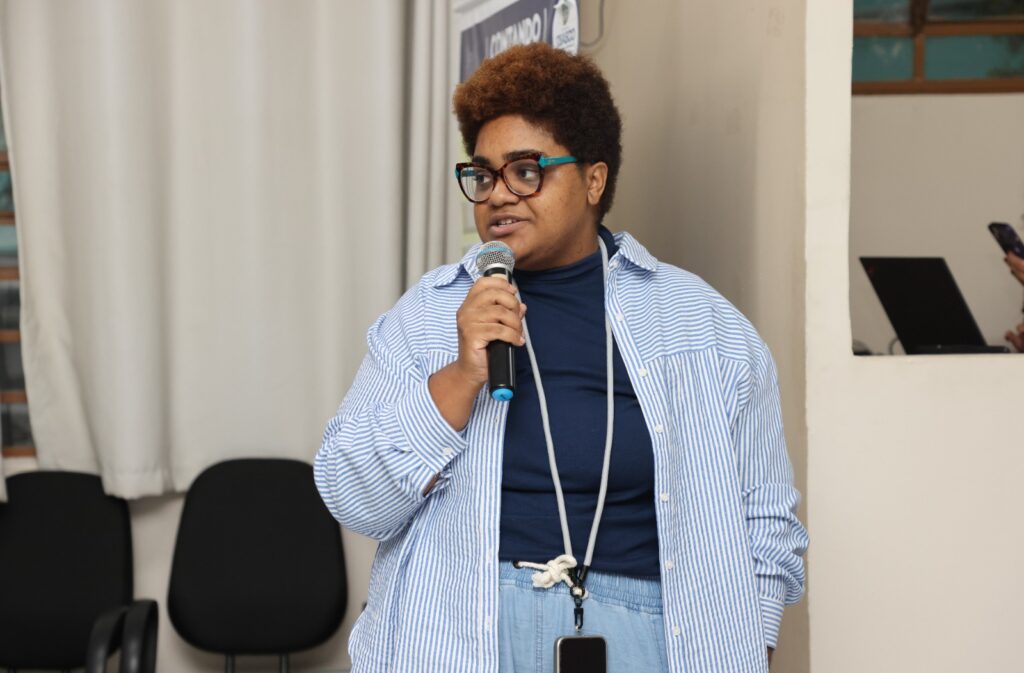
Laysi Zacarias
I am a Brazilian legal scholar, writer, and Ph.D. candidate in Cultural Anthropology at the University of California, Riverside. My practice weaves through law, anthropology, Black study and political curation—as forms of embodied listening and insurgent knowledge.
Rooted in both grounded scholarship and spiritual responsibility, my research traces and theorizes collective inventions forged by Black and queer communities confronting the sustained architecture of premature death: incarceration, repressive policing, environmental exposure, and systemic abandonment. These are not appeals to recognition or inclusion, but aesthetic and ethical refusals—practices of antiarchive, Black–nonblack collaboration, and everyday resistance that reorient what we mean by the Human and the Social.
This work is deeply situated across Ribeirão Preto, São Paulo, Rio de Janeiro, Los Angeles, and Riverside—territories where I have lived, listened, organized, and been transformed. Each city is part of a map of grief and possibility, of struggle and ritual, of documentation and reimagination.
Shaped by a temperament that values structure, groundedness, and careful attention to detail, I move with deliberate depth and embodied precision. My research does not merely document suffering—it follows the moments when the unbearable is rearranged: into a chant, a mural, a procession, or a legal file turned into poetry.
I am especially drawn to the Black and queer communities who claim not visibility, but viability—a world beyond the demand for redemption, rooted in the right to exist otherwise.
This is the work of the Earth: to build from the ruins, to tend to the silence, to make life viable where the world insists it should not be.
Mentorship for Insurgent Projects and Life Paths
One-on-one mentorship for researchers, artists, and movement workers who are building life from refusal and seeking to reorient their practices, studies, or forms of care.
Grounded sessions for listening, organizing ideas, curating references, navigating transitions, and aligning purpose with path.
Writing and Impact Curation
Support in crafting powerful narratives—bios, manifestos, grant proposals, creative portfolios, public statements, or curatorial texts—with ethical coherence and poetic strength.
For individuals, collectives, or institutions seeking depth and resonance in how they tell their stories and present their work
Tailored Workshops and Political-Poetic Formations
Design and facilitation of workshops on topics such as:
– Blackness and the archive
– Ethics of presence and refusal
– Mourning as method
– Poetics of everyday survival
– Listening and living otherwise
Available for universities, art institutions, grassroots networks, and learning collectives.
Talks, Keynotes & Facilitated Dialogues
Speaking engagements rooted in my research, curatorial practices, and lived experience. I speak about Black and queer resistance, maternal futurity, archival rupture, and spiritual-political imagination.
Formats include: keynotes, panels, podcasts, curated conversations, lecture-performances, and ritual interventions.
Ghostwriting for Visionary Leaders
Confidential writing support for executives, activists, scholars, and cultural workers who need their ideas shaped into powerful public texts—without losing nuance, ethics, or soul.
I ghostwrite op-eds, keynote speeches, letters, strategy memos, public statements, book proposals, and more—with deep listening and political commitment at the core.
AI Consulting for Research Activation and Public Engagement
Tailored support for researchers, cultural workers, and community organizers who want to ethically integrate artificial intelligence into their projects—especially in the humanities and social fields.
I help you bring your research out of the archive and into the world: transforming academic materials into accessible, multimodal content; building workflows for public communication; and experimenting with AI tools that align with your politics and voice.
Ideal for: digital humanities projects, memory initiatives, community-based research, and scholar–activist collaborations.